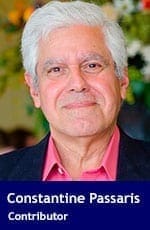 Canada has always had a soft spot for refugees who have shaped our nation’s history, fuelled its economic growth, defined its social fabric and influenced its political direction.
Canada has always had a soft spot for refugees who have shaped our nation’s history, fuelled its economic growth, defined its social fabric and influenced its political direction.
This tradition began most significantly in 1783 with the arrival of United Empire Loyalists seeking safe haven from the American Revolution. About 33,000 settled in New Brunswick and Nova Scotia, with another 2,000 to Prince Edward Island and 10,000 or so more to modern day Quebec and Ontario. They were followed in the 19th century by, among others, Poles, Ukrainians and Jews who fled from oppression and persecution and wound up building Canada into the great nation it is today.
Canadians have long been known and recognized not only for humanitarian actions but also for understanding the passion and value refugees bring. In 1986, the United Nations High Commissioner for Refugees conferred the Nansen Medal upon the people of Canada in recognition of that tradition which since the Second World War has welcomed waves of refugees from Hungary, Czechoslovakia, Uganda, Chile, China and Vietnam, to say nothing of the many displaced Europeans who sought a better post war life here. The Syrians are but the most recent manifestation and there is no reason to expect they will not, like those who came before, work hard to build a better life and a richer, stronger Canada.
In what has become the world’s largest humanitarian crisis in close to 70 years, more than four million people have fled Syria since the conflicts there began. In 2015, more than one million crossed into Europe and Canada has committed to accepting 25,000, close to 7,000 of whom have already arrived, over the next few months.
By chance and while on a weeklong working visit to Greece last month, I encountered two busloads of these people and they were not what one would assume to be typical refugees. Most were well nourished and part of healthy young families. They were elegantly dressed, articulate and had money. They doted on their children, buying them sweets, chocolate bars and pop. Clearly, they were a segment of the Syrian middle class fleeing their war torn country in search of political stability and economic opportunity.
There was nothing about them to justify the mythical rhetoric that refugees are a security risk, a drain on the public treasury and a burden on our healthcare system. Canada screens diligently and carefully for security and health risks. In fact, coming to Canada as a refugee is twice as difficult as being admitted as an economic migrant. This is because admission as a refugee in Canada requires United Nations certification. Further, applicants need to possess the human capital and work skills that will lead to successful integration in our society and economy.
The arrival of the latest wave of Syrians in the past few weeks is more than an act of collective Canadian compassion. It is an investment – a tool for addressing our population challenges which in turn gives us the manpower necessary to fuel our economic growth.
Expect this wave of refugees, just as those who came before have done, to empower us with their entrepreneurial talents, start new businesses, invest, spend on homes, cars and other items, join our workforce and enroll in our schools. All of this will grow our economy. In short, the Syrian movement will, similar to the influx of previous waves of refugees throughout our history, become a driver of population growth and economic activity.
The arrival of Syrian refugees to Canada will be both a humanitarian triumph and an economic lift off
Dr. Constantine Passaris is a Professor of Economics at the University of New Brunswick and a national research affiliate of the Prentice Institute for Global Economy and Population at the University of Lethbridge (Canada).
Constantine is a Troy Media contributor. Why aren’t you?
The views, opinions and positions expressed by columnists and contributors are the author’s alone. They do not inherently or expressly reflect the views, opinions and/or positions of our publication.


